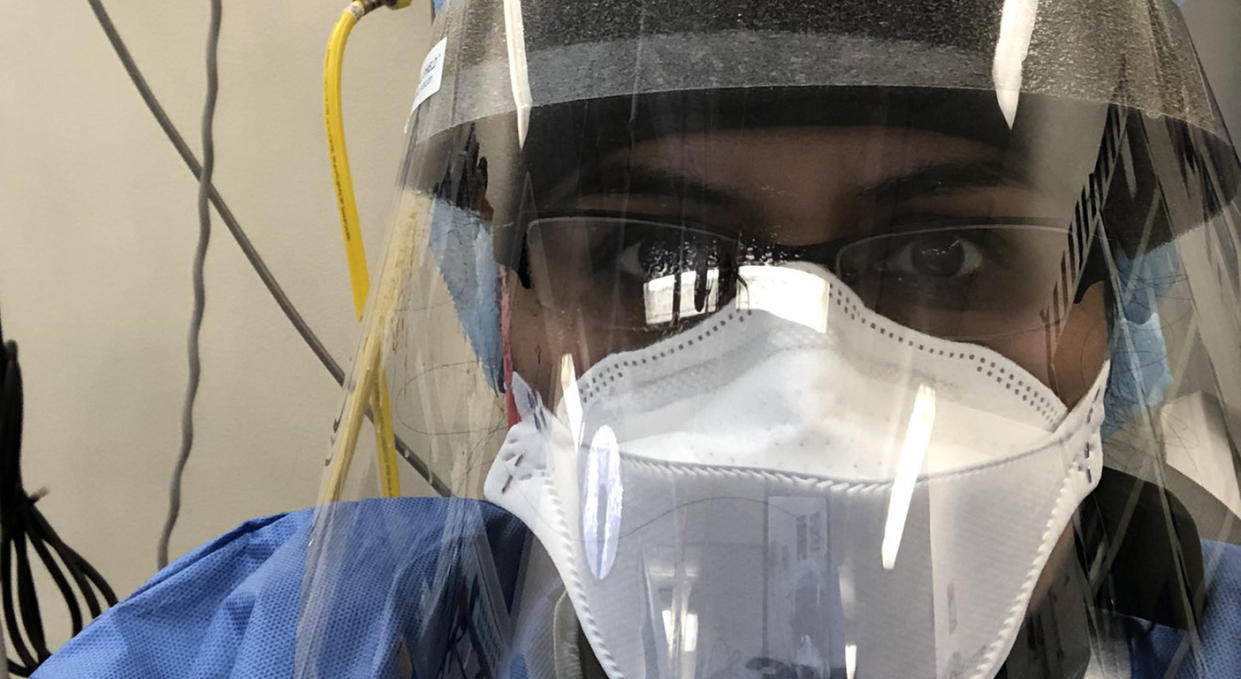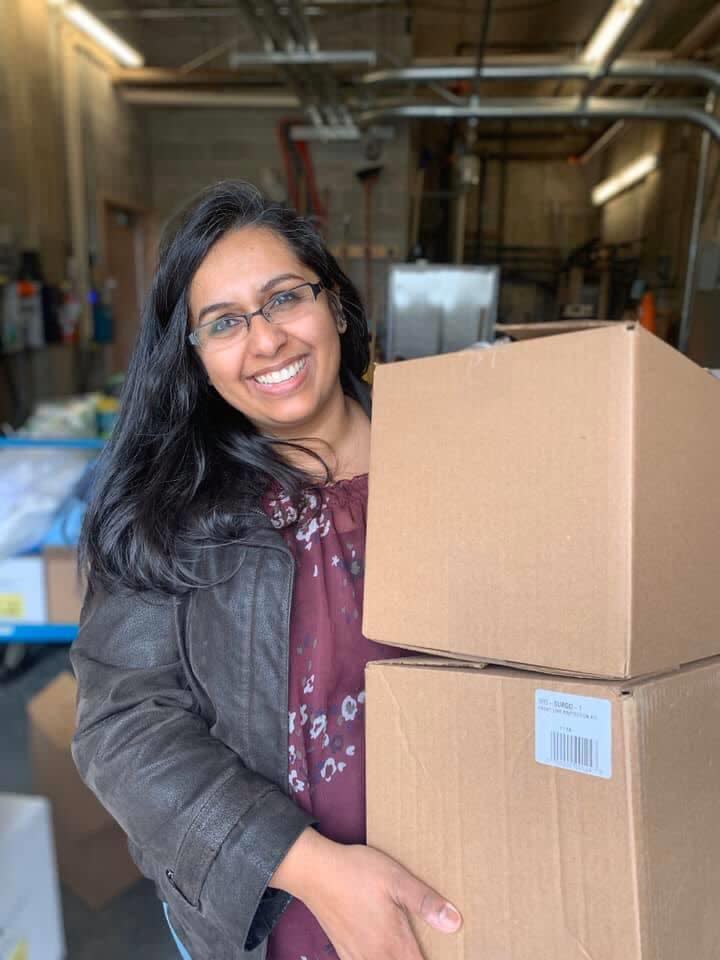'I want to die looking at the blue sky': Doctor's heartbreaking COVID-19 moment can't be forgotten

Imagine walking into a room after spending seven hours wearing an N95 mask to learn the elderly patient you’ve been assigned to wants to forego life support and will likely lose the fight against COVID-19.
That was the nightmare faced last week by Dr. Nadia Alam, an anesthetist at Georgetown Hospital in Ontario, when she was told by her 72-year-old patient he just wanted to take a break from the madness.
“He just said, I don’t want to die on a machine, I want to die looking at the blue sky, I want to die talking to my family, I don’t want to die on a machine,” said Dr. Alam, who also has her own family medicine practice in Georgetown.
Dr. Alam sat next to the man in the hospital room as he called his family, who were not permitted to visit him, and told them he was opting for medicine to soothe his pain and that he may not survive.
“He hasn’t had anyone sit down and talk to him for days, he’d been alone… I sat down and my heart just broke and I held his hand while we looked at the sky,” she said.
I’m starving. Thirsty. Tired. I wore my N95 mask for 7 hours straight. Careful to conserve my #PPE.
Then I go see a 72 yr old man with poor lung function & #COVIDー19, on oxygen.
“I don’t want to die on a machine. I want to see the blue sky.”
So I sat. And we watched the sky. pic.twitter.com/jDoQpIpRwn— Dr. Nadia Alam (@DocSchmadia) April 9, 2020
Dr. Alam’s humane response to a stark reality led to thousands online applauding her bravery and thanking her for her courage amid the ongoing pandemic. But while onlookers praise her courage, she is fearful of contracting the disease herself.
“It’s this constant fear and worry that eats away at you, but that’s the reality. I signed up to be a doctor, to take care of patients through thick and thin, and I love my job,” she said.
For Dr. Alam and others on the front line, that means wearing protective gear almost every second of the shift, running from patient to patient with time to rest only when they’ve gone home.
The image of Dr. Alam suited in her personal protective equipment (PPE) hit home for many Canadians, who finally had a visual insight to the lengths doctors must go to help people who are ill.
“I left my mask on, by the time I went to see this patient I hadn’t eaten anything, I hadn’t drank anything, I was tired, it was hot under the mask and gear,” she said.
While saving patients is the most important task, hospital staff are now being forced to be cognizant of the masks they’re using, especially as provinces scramble to get more gear.
“On top of everything we do, doctors, nurses, housekeeping staff we’re all very conscious of the fact that every time we put on a mask that is one less we can use later when the surge of COVID-19 patients hit,” she said.
Staring at the blue sky
The moment of vulnerability Dr. Alam shared with her 72-year-old patient is an experience that will live with her forever.
The notes she received prior to seeing the patient briefed her on his diminishing health situation since he had been admitted to the hospital.
“He doesn’t have great lung function... over the past few days, he needed more and more oxygen, which is a sign COVID-19 was winning,” she said as she wept.
“My six-year-old son turns to me routinely when I go to work and tells me not to die, he asks me not to die.” - Dr. Nadia Alam
When a patient with COVID-19 gets to this point of their illness, Dr. Alam said there are just a couple routes they can go, and neither guarantee survival.
“He could go on life support to see if he could buy himself more time and things might turn around or he could keep continuing with medical management and fight it off,” she said.
The man’s decision was essentially between a rock and a hard place. Originally he had chosen to be kept on life support, with the belief the machine would cure him.
“I had to tell him, all life support will do is buy you some time, you’re very sick, and I can’t guarantee going on life support means you live,” she said.

Given his age and medical history, Dr. Alam knew if the patient went on life support there was a strong chance he would not survive. The man understood his situation and just wanted some human interaction, more than what nurses or phone calls could warrant.
“He wanted touch, he wanted someone to talk to, someone he could share his thoughts with, and nobody could visit him, nobody could do that for him,” she said.
The patient was eventually put on medical management, but Dr. Alam admits the chances of survival are slim to none.
“He’s in medical management, he knows why he did it, and we’re just trying to make it less painful until he has to go,” she said as her voice broke.
The vulnerability of her patient to be open about how he wanted to be treated medically was a reminder for Dr. Alam about the severity and emotional impacts of COVID-19.
“I always feel contaminated from the virus from the work that I do, and I worry about seeing my kids because I might pass it onto them,” she said.
Dr. Alam, a mother of four, goes home to her children every night after work, often feeling selfish as she could be risking their safety. The first thing she does when arriving home is to wash her PPE, then shower and scrub down every inch of the house she has touched. But the concern isn’t just on her end, as her children are worried about their mother’s wellbeing.
“They worry about me a lot, I know it’s wearing on my kids. My six-year-old son turns to me routinely when I go to work and tells me not to die, he asks me not to die,” she said.
While she cannot do much to change her reality to help people in need, Dr. Alam admits that she’s learned the real significance of hand-washing during this time.
“I’ve never before appreciated the simple act of hand-washing and hand hygiene, how lifesaving something that mundane can be,” said Dr. Alam.



